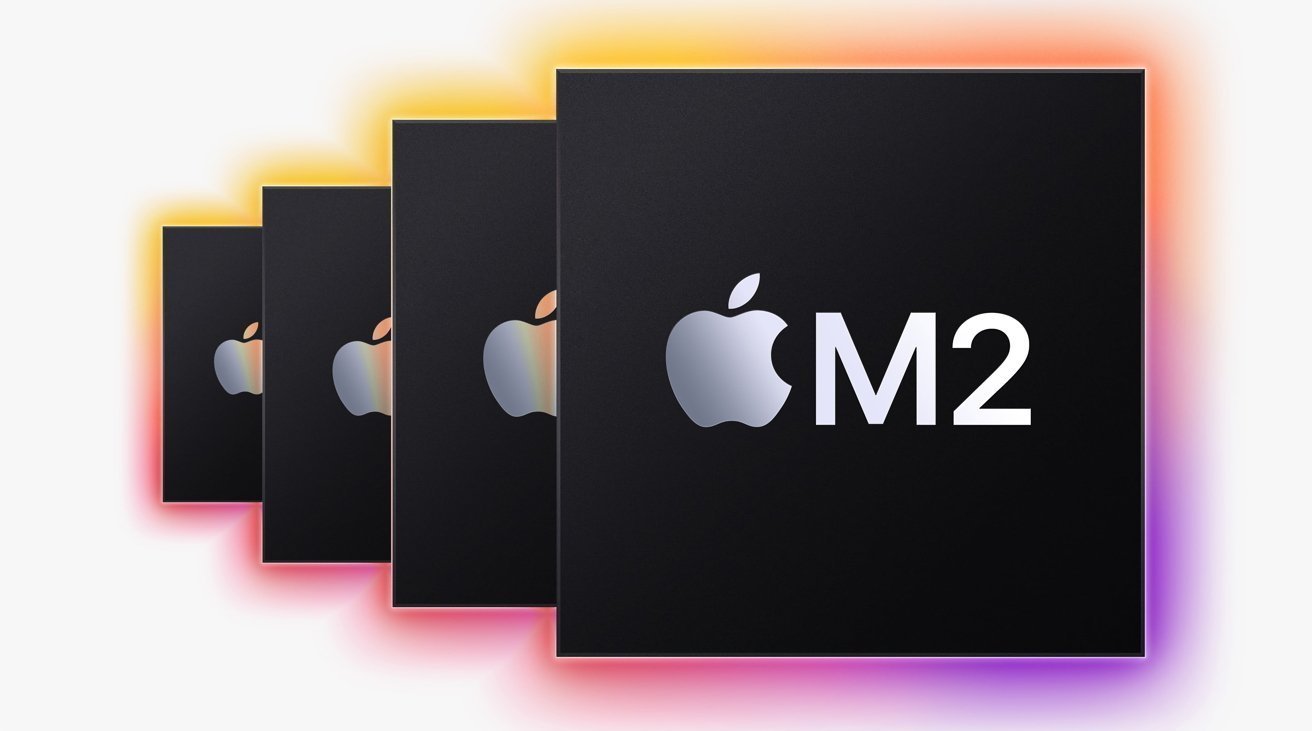Apple Silicon could shift to a 3-nanometer production process during the M2 generation, a report claims, instead of waiting to introduce the chips as part of M3.
Apple's initial second-generation Apple Silicon chip launch, the M2, is one that uses a similar 5-nanometer process for its construction as the M1 lineup. In a Monday report, it is believed that not all of the M2 range will be made using 5-nanometer techniques.
Apple has reportedly booked capacity with chip partner TSMC for its 3nm production lines, according to DigiTimes. While not entirely unexpected of Apple to do so, the report adds that it will be used for Apple's upcoming M2 Pro chips, as well as its eventual M3 lineup.
It is thought that volume production of 3nm chips by TSMC will start in the second half of 2022. The chip maker is also investing heavily in new facilities to push forward with 3-nanometer production.
TSMC's 3nm processes would provide multiple benefits to Apple, including a 15% speed improvement at the same power level as a chip made using 5nm processes, or a 30% reduction in power consumption for comparative speeds.
While the move would be beneficial to the M2 Pro if true, and presumably follow-up chips like a Max or Ultra version, switching processes mid-generation would be a very unusual move for a company. Since the M1 lineup was built using similar techniques across the board, the expectation would be for Apple to do the same for the M2, leaving the bigger changes for a generational leap.
It would also mean that a MacBook Pro with the chip wouldn't arrive until well into 2023.
June rumors have Apple preparing a Mac mini, 14-inch MacBook Pro, and 16-inch MacBook Pro update in the next year, all sporting M2 Pro chips.
 Malcolm Owen
Malcolm Owen








 Brian Patterson
Brian Patterson
 Charles Martin
Charles Martin



 William Gallagher
William Gallagher
 Christine McKee
Christine McKee
 Marko Zivkovic
Marko Zivkovic







4 Comments
The M2 Pro and up will consume less power and get a performance increase just from the 3nm shift alone. Add in the improvements (improved cores, additional cores, increased clock speed), and we could see a very big jump this generation.
I wonder if the clock speed will be higher than M2, due to less heat being produced by the chip (smaller process) combined with the fantastic thermals in the 14” and 16” MBP.
They are starting the process then to see how many dyes will set. They do this to perfect the process as there are always some that don’t set. The MBP’s were this way. That’s why you see some with 8 cores instead of ten. Because some dyes did not set all the way
It's worth remembering that Apple has the resources to book the foundry capacity and then not (fully) use it. This would enable them to have small volume production runs at the time of their choosing while preventing competitors from doing the same.
But if I had to guess, I would say the 3nm process will be used by the A-series chips and not the M-series - not the M2, at least. The timing is right for an iPhone release (the later months of the year) and the volumes required will no doubt stretch the capacity of the foundry.
It would be a very unusual marketing choice to do this, but apple seems to understand marketing pretty well, so I defer to them.
I wonder if they’ll switch core designs too….